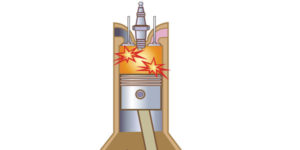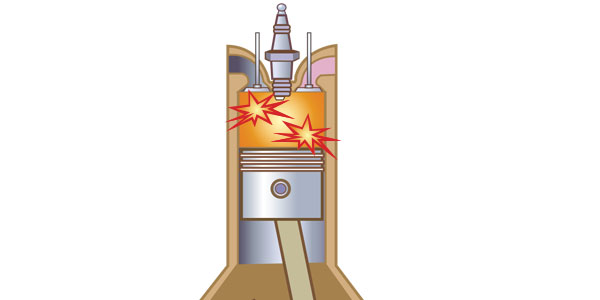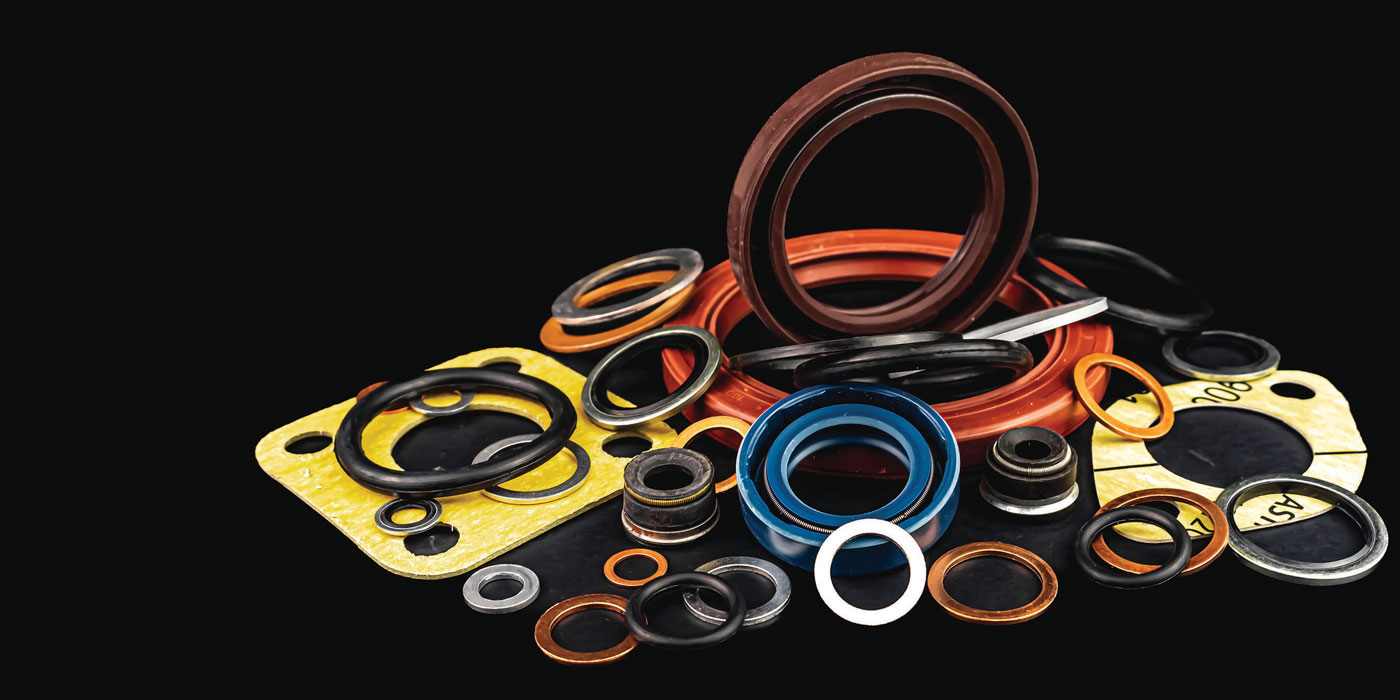Detonation, also known as “knock,” has long been an enemy of the internal combustion engine. As the air-fuel mixture is compressed by the pistons, it creates heat. Under certain operating conditions, this can lead to an uncontrolled combustion of the air-fuel mixture which occurs independently from the precisely-timed ignition of the spark plug. These explosions may occur before the spark ignition sequence (pre-ignition), or even after the engine has been shut down (run-on or “dieseling”), but detonation commonly occurs when isolated pockets of air-fuel mixture begin to burn before the controlled flame front expands throughout the cylinder.
 The resulting “knocking” noise is the most noticeable symptom of detonation. These shock waves can cause high cylinder pressures, component wear, and in extreme cases, cylinder head or piston damage. There are a number of contributing factors that can result in knock, including high cylinder temperatures, lean air-fuel mixtures, excessive timing advance, and especially the use of low octane fuels. While modern computer strategies can automatically retard timing and alter fuel injector pulse width as necessary to help maintain efficient combustion under differing engine loads, older vehicles rely on more hands-on tuning to find a compromise between economy and performance. The relationship between heat and pressure also means that high-compression engines (including supercharged and turbocharged engines) can be more prone to engine knock, especially when running lower octane fuels. While high-octane premium fuels to can help combat engine knock, some of our customers prefer using fuel additives to help increase the octane ratings of regular 87 octane pump gas.
The resulting “knocking” noise is the most noticeable symptom of detonation. These shock waves can cause high cylinder pressures, component wear, and in extreme cases, cylinder head or piston damage. There are a number of contributing factors that can result in knock, including high cylinder temperatures, lean air-fuel mixtures, excessive timing advance, and especially the use of low octane fuels. While modern computer strategies can automatically retard timing and alter fuel injector pulse width as necessary to help maintain efficient combustion under differing engine loads, older vehicles rely on more hands-on tuning to find a compromise between economy and performance. The relationship between heat and pressure also means that high-compression engines (including supercharged and turbocharged engines) can be more prone to engine knock, especially when running lower octane fuels. While high-octane premium fuels to can help combat engine knock, some of our customers prefer using fuel additives to help increase the octane ratings of regular 87 octane pump gas.
Fuel additives such as octane boosters and lead substitutes are popular DIY purchases, especially among classic and muscle car owners, but these two products have more in common than you might think. Beginning in the
1920s, tetraethyl lead was a common additive found in gasoline. While most of us associate lead with its ability to reduce valve seat wear, its original purpose was to increase the octane of early fuels. This original “octane booster” allowed engine designers to develop more powerful, higher compression engines capable of higher RPMs and better fuel economy. Eventually, a secondary benefit of lead additives became evident. As a result of the combustion process, the thin deposits of lead oxides that formed on the exhaust valves helped prevent wear on the valve seats, extending the life of these components. Fuel chemists had not only developed an inexpensive way to raise octane numbers, but also discovered a way to reduce valve seat recession and extend valve life.
Unfortunately, there were severe environmental and human health hazards associated with “leaded gas.” In 1996, the sale of leaded gasoline was banned in the United States, and owners of vintage vehicles were forced to switch to the unleaded pump. Lead substitutes became common on our store shelves, and machine shops saw an increase in requests for hardened valve seat inserts and cylinder head repairs on older vehicles.
While lead substitutes are intended for older engines (usually without catalytic converters), octane boosters are popular additives among all types of vehicle owners, especially performance enthusiasts. The actual “recipes” for these octane boosters are closely-kept trade secrets, but most of them use one or more or the following ingredients to raise the octane of regular pump gas: methylcyclopentadienyl manganese tricarbonyl (MMT), toluene, and variants of trimethylbenzene. MMT is a common ingredient in lead substitutes as well as unleaded gasoline, while the others are hydrocarbons derived from gasoline production itself. Ethanol is also a popular ingredient in octane boosters, because on its own, ethanol already has a very high octane rating (roughly 110).
Supplementing regular (87 octane) or mid-grade (89 octane) gasoline with a quality octane booster may be beneficial to hard-working, high-compression engines, especially in hot weather. Octane boosters generally also contain detergents, stabilizers and other chemicals to help maintain a healthy fuel system. These specialized fuel additives make for great add-on sales, and also help ensure that the sound you hear is opportunity knocking, rather than your customer’s engine!










